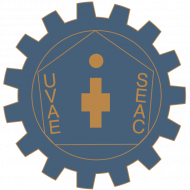
We, at the Union of Veterans Affairs Employees (UVAE), would like to acknowledge all our Indigenous brothers and sisters and celebrate their culture and diversity that are an important part of our Canadian history.
To raise awareness and celebrate the Indigenous population, August 9th was proclaimed as the International Day of Indigenous People by the General Assembly of the United Nations in December 1994.
“There are over 370 – 500 million Indigenous People across the globe – from the Arctic to South Pacific, and they speak the majority of the world’s estimated 7000 languages and represent 5,000 cultures” (McKenzie, B, August 14, 2019).
The Indigenous people of the world have proudly retained their distinct social, cultural, economic, and political characteristics. “Unfortunately, many indigenous peoples continue to be confronted with marginalization, extreme poverty, and other human rights violations” (UNESCO, 2019). In the past decade, the indigenous people won many important victories and achievements in their fight for equity and equality, but a lot of work still needs to be done.
This event also recognizes the achievements and contributions that indigenous people make to improve the world in which we live and inspire change to better our future. Here are a few heroes that have made a difference:
Rinelle Harper, who at 16, after having been sexually assaulted and viciously beaten rose to become an advocate for victims of violence. “She demanded a national inquiry into the missing and murdered indigenous women in Canada to became “a voice for the voiceless”” (National Inquiry into Missing and Murdered Indigenous Women and Girls, 2016).
Elijah Harper was a key player in 1990 on a vote in the Manitoba Legislature regarding the Meech Lake Accord when he rose and held an eagle feather to protest Aboriginal people not being consulted during the initial negotiation that was concluded in 1987. With this one vote, the Meech Lake accord failed to pass in Manitoba and the Canadian constitution was not amended.
Senator Murray Sinclair was the first Indigenous Judge to be appointed in Manitoba and the 2nd in Canada (Senate of Canada, 2020). Senator Sinclair was appointed the Chair of Canada’s Indian Residential Schools Truth and Reconciliation Commission in June 2009. He has been an important figure for the Aboriginal people. He was awarded a National Aboriginal Achievement Award in the field of Justice in 1994, and the Inspire Awards for Lifetime Achievement in 2017. Senator Sinclair has received 14 honorary degrees for his work in the field of Aboriginal justice (Wikipedia, 2020).
Harry Daniels, along with Louis Riel introduced the rights of Metis Peoples in the Constitution of Canada (Petten, C., 2004). In the 1970s and 1980s Harry Daniels, inspired by Louis Riel, was one of many aboriginal leaders that negotiated for Metis and non-status indigenous people to be included in the Constitution Act of 1982.
Let us all take this moment to celebrate indigenous people, especially our brothers and sisters in the union movement in all that they have achieved and for awakening us to their rights and educating us in how to be strong allies. All UVAE stands by you!
In Solidarity!
The UVAE Human Rights Committee
Shane Polak
Rosa Martin
Zarina Khan
References:
Petten, C. (2004) Friends say goodbye to Harry Daniels,
https://ammsa.com/publications/alberta-sweetgrass/friends-say-goodbye-harry-daniels
https://sencanada.ca/en/senators/sinclair-murray
https://en.unesco.org/events/international-day-worlds-indigenous-peoples
